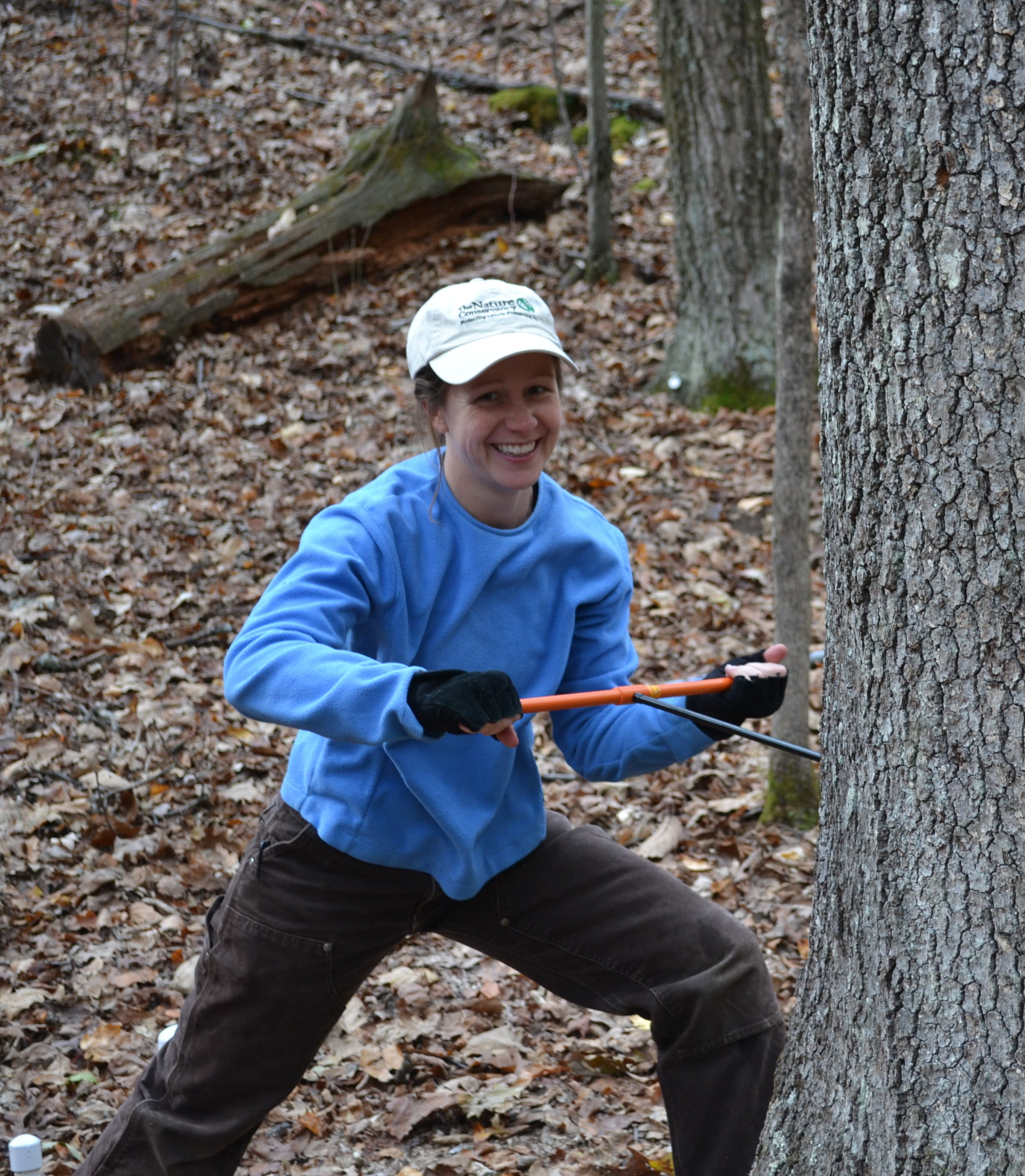Forest responses to global change across space and time.
The Forest Ecology lab at The Morton Arboretum investigates changes in tree and forest dynamics across space and time, at both regional and local scales. We use fundamental ecological principles to help provide tangible and actionable information for land conservation to preserve species and healthy, functioning ecosystems. Our research connects individual tree growth and success during succession to large-scale, emergent phenomena such as species range boundaries. We study the mechanisms regulating patterns across organizational, temporal, and spatial scales so that science can be better integrated into global forest and species conservation plans with information that is locally applicable and actionable.
As an individual, I seek to provide research into fundamental and applied questions about how we can conserve trees and forests in a changing world. My research typically uses a temporal lens to connect sub-seasonal biological processes and events in individual trees (e.g. phenology and weather stress responses) to multi-decadal patterns of species interactions, community assembly/change, range shifts, and ecosystem function. I have experience with numerous ecological disciplines and approaches including field, “big data”, and model based methods.
Note from Christy: Maintaining a web page is one of my least favorite things, so this website periodically becomes out of date. If you have any questions about what we’re working on lately or anything else, please feel free to contact me or send anyone in the Forest Ecology group an email (and bug me again if your email falls though the cracks).
Last Updated: 4 March 2021
About
Find out about Christy and others involved with the Forest Ecology lab at The Morton Arboretum.
Research
More about specific past and present research themes and projects of the Forest Ecology Lab at The Morton Arboretum.
Get Involved
Interested in being a part of the work we do? We are continually seeking volunteers and students to help advance our research.



